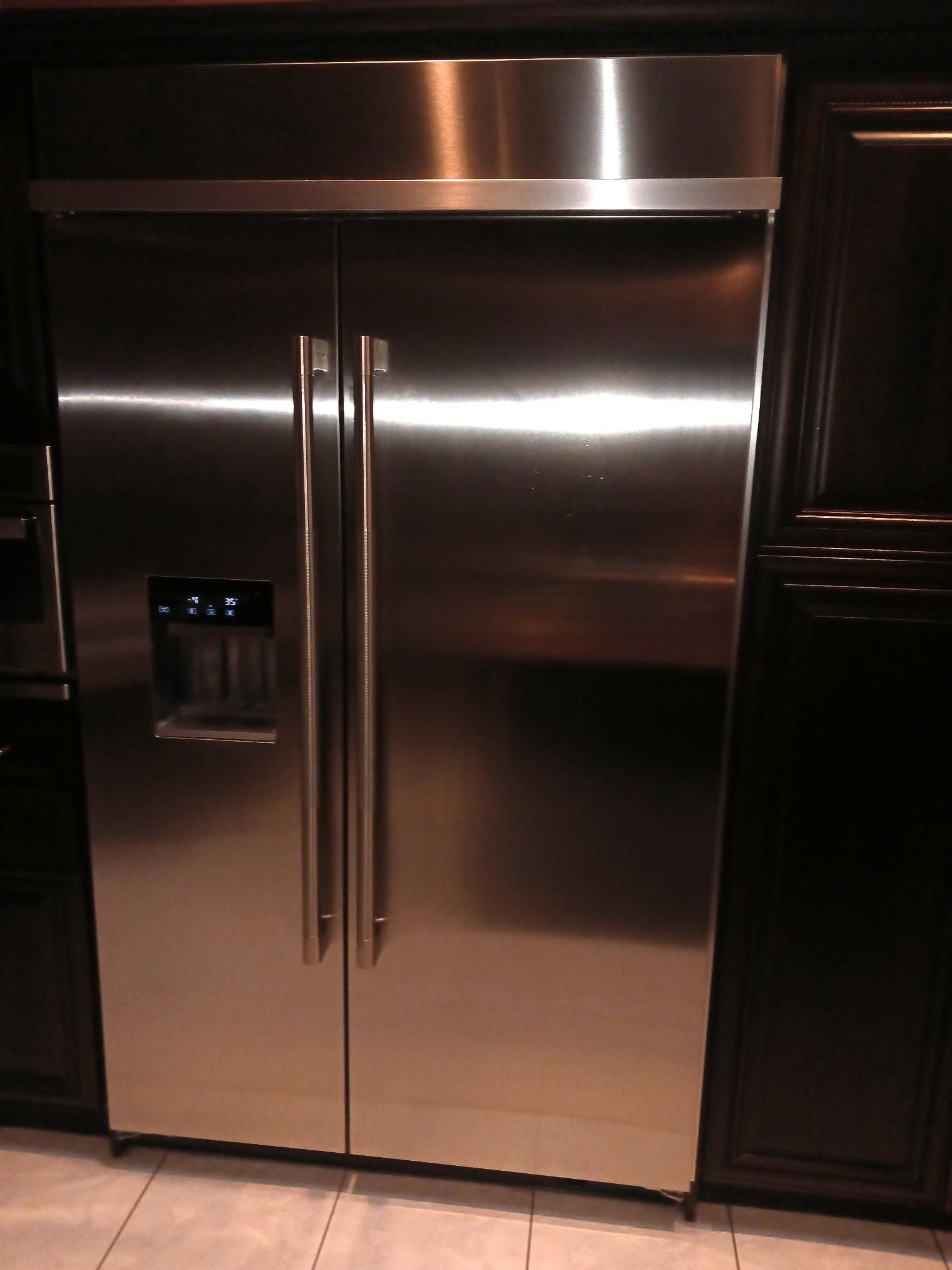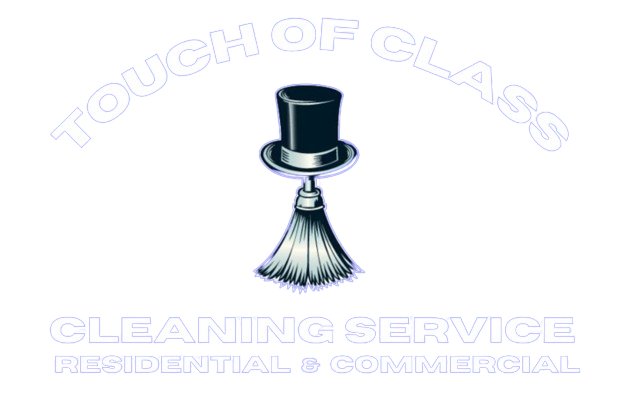High-Quality Cleaning Services in Metro Detroit

Introduction : Every home faces unique cleaning challenges that require special attention and techniques. In this blog post, we'll address some of the most common tough cleaning issues—mold, grease, and hard water stains—and provide you with effective solutions to tackle them. 1. Mold Removal Why It's a Problem: Mold not only looks unpleasant but can also pose serious health risks, including respiratory issues and allergies. It thrives in damp, dark areas such as bathrooms, basements, and behind walls. Effective Solutions: Identify the Source: Find and fix any leaks or sources of moisture to prevent mold from returning. Vinegar and Baking Soda: Spray white vinegar onto the moldy surface and let it sit for an hour. Scrub the area with a brush and rinse with water. For stubborn mold, create a paste with baking soda and water, apply it to the mold, and scrub after 15 minutes. Hydrogen Peroxide: Apply 3% hydrogen peroxide to the mold, let it sit for 10 minutes, then scrub and rinse. Tea Tree Oil: Mix one teaspoon of tea tree oil with one cup of water. Spray the solution on the mold, let it sit, and wipe away without rinsing. Preventive Tips: Use dehumidifiers in damp areas. Ensure proper ventilation, especially in bathrooms and kitchens. Regularly clean and inspect areas prone to moisture. 2. Grease Build-Up Why It's a Problem: Grease can accumulate quickly in kitchens, creating a sticky, hard-to-clean residue on surfaces, appliances, and cookware. Effective Solutions: Dish Soap and Hot Water: Soak greasy items in hot water with a few drops of dish soap. Scrub with a sponge or brush to remove the grease. Baking Soda: Sprinkle baking soda on greasy surfaces, let it sit for a few minutes, then scrub with a damp sponge. Vinegar: Mix equal parts white vinegar and water in a spray bottle. Spray the greasy area, let it sit for a few minutes, then wipe clean with a cloth. Commercial Degreasers: For tough grease build-up, use a commercial degreaser following the manufacturer's instructions. Preventive Tips: Wipe down surfaces regularly to prevent grease build-up. Clean spills and splatters immediately. Use splatter guards when cooking. 3. Hard Water Stains Why It's a Problem: Hard water stains, caused by mineral deposits from water, can leave unsightly marks on glass, faucets, and tiles. Effective Solutions: Vinegar: Soak a cloth in white vinegar and wrap it around the stained area. Let it sit for an hour, then scrub with a brush or sponge. Lemon Juice: Apply lemon juice to the stains, let it sit for 10 minutes, and scrub with a sponge. Baking Soda Paste: Make a paste with baking soda and water. Apply it to the stains, let it sit for 15 minutes, then scrub and rinse. Commercial Cleaners: Use a commercial hard water stain remover for stubborn stains, following the manufacturer's instructions. Preventive Tips: Dry surfaces immediately after they get wet. Install a water softener to reduce mineral content in the water. Use squeegees on glass surfaces after each use. Conclusion: Tackling tough cleaning challenges like mold, grease, and hard water stains requires the right tools and techniques. By following these effective solutions and preventive tips, you can keep your home clean and free from these common issues. If you need professional assistance, don't hesitate to contact us for expert cleaning services tailored to your needs. Call to Action: For more cleaning tips and expert advice, follow our blog and connect with us on social media. If you're facing tough cleaning challenges, our professional cleaning team is here to help—contact us today to schedule a consultation!

Stainless steel appliances are prized for their modern look and durability, making them a popular choice in kitchens. However, their sleek appearance can quickly be marred by fingerprints, smudges, and water spots if not properly cared for. Understanding how to clean and maintain stainless steel appliances is essential to keep them looking their best. In this comprehensive guide, we'll explore effective techniques, essential supplies, and maintenance tips to ensure your stainless steel appliances shine. Understanding Stainless Steel Stainless steel is a durable and corrosion-resistant material made from a combination of metals, including chromium, nickel, and iron. Its smooth surface makes it susceptible to fingerprints and smudges, requiring regular cleaning to maintain its aesthetic appeal. Essential Cleaning Supplies Before you begin cleaning your stainless steel appliances, gather these supplies: Microfiber cloth: Ideal for gentle cleaning and polishing without scratching the surface. Stainless steel cleaner: Choose a cleaner specifically formulated for stainless steel surfaces to avoid damage and streaking. Warm water: Use for basic cleaning and rinsing. White vinegar: Effective for removing tough stains, water spots, and enhancing shine. Rubbing alcohol: Helps dissolve grease and sanitize surfaces effectively. Step-by-Step Cleaning Process 1. Daily Maintenance Regular Wipe Downs: Use a microfiber cloth dampened with warm water to wipe down your appliances daily. This removes surface dust, oils, and light fingerprints. Buffing: After cleaning, buff the surface with a dry microfiber cloth to restore shine and remove any remaining streaks. 2. Deep Cleaning Apply Stainless Steel Cleaner: Apply a small amount of stainless steel cleaner onto a clean microfiber cloth. Wipe in the Direction of the Grain: If your appliance has a visible grain, wipe in the direction of the grain to minimize streaks. Rinse and Dry: Rinse the surface with clean water to remove cleaner residue, then dry thoroughly with a dry microfiber cloth to prevent water spots. 3. Removing Stubborn Stains Vinegar Solution: For tougher stains and water spots, mix equal parts white vinegar and water. Dampen a microfiber cloth with the solution and gently rub the affected area. Rubbing Alcohol: Apply rubbing alcohol to a cloth to remove grease spots or stubborn residues. Follow up with a stainless steel cleaner for a polished finish. Additional Tips for Maintenance Avoid Abrasive Cleaners: Abrasive cleaners, steel wool, or scrubbing pads can scratch stainless steel surfaces. Stick to soft microfiber cloths and non-abrasive cleaners. Use Stainless Steel Polish: Periodically apply a stainless steel polish or protective coating to maintain shine and resist fingerprints. Regular Inspections: Inspect your appliances regularly for any signs of damage or discoloration. Address issues promptly to prevent further damage. Conclusion With proper care and maintenance, cleaning stainless steel appliances can be straightforward and rewarding. Incorporate these detailed cleaning techniques and maintenance tips into your routine to preserve the beauty and durability of your stainless steel appliances for years to come. Whether it's your refrigerator, stove, dishwasher, or microwave, a little effort in cleaning and maintaining your stainless steel appliances will ensure they continue to enhance your kitchen's aesthetic appeal. By following these guidelines, you can enjoy the sleek look and functionality of stainless steel appliances in your kitchen without the worry of unsightly smudges or stains. For professional results or if you're unsure about any cleaning methods, consider consulting a cleaning service experienced in handling stainless steel surfaces.

Spring is the perfect time to refresh your home and get it sparkling clean after the winter months. To help you tackle this annual task efficiently, we've created the ultimate spring cleaning checklist. Follow these tips for a spotless home that feels brand new! 1. Decluttering Strategies Before you start cleaning, it's essential to declutter your space. Here's how: Room-by-room approach: Tackle one room at a time to avoid feeling overwhelmed. Sort items: Create piles for items to keep, donate, recycle, or discard. Storage solutions: Invest in storage bins, shelves, and organizers to keep things tidy. 2. Deep Cleaning Tips for Each Room Kitchen : Refrigerator: Empty, defrost, and clean shelves and drawers. Discard expired items. Oven and Microwave: Use a baking soda paste or commercial cleaner to remove grime. Cabinets and Drawers: Wipe down surfaces and reorganize contents. Countertops and Sink: Use a disinfectant to clean and polish. Living Room: Furniture: Vacuum upholstery, clean under cushions, and polish wooden surfaces. Carpets and Rugs: Deep clean with a carpet cleaner or hire a professional. Windows: Wash windows, sills, and blinds. Dusting: Dust all surfaces, including ceiling fans and light fixtures. Bathrooms : Shower and Tub: Scrub tiles, grout, and fixtures with a strong cleaner. Toilet: Clean inside and out with a disinfectant. Sink and Countertops: Remove soap scum and polish surfaces. Mirrors and Windows: Use a glass cleaner for a streak-free shine. Bedrooms : Bedding: Wash all linens, including mattress covers and pillowcases. Closets: Declutter, organize, and wipe down shelves and doors. Floors: Vacuum carpets or mop hardwood floors. Dusting: Dust all surfaces, including baseboards and lamps. Garage : Declutter: Sort through tools, sports equipment, and seasonal items. Organize: Use shelves, hooks, and bins to keep things in order. Sweep and Clean: Remove debris and clean the floor. 3. Natural Cleaning Solutions Using natural cleaning products can be just as effective as commercial ones and safer for your home and the environment. Vinegar and Baking Soda: Great for cleaning countertops, sinks, and removing odors. Lemon Juice: Perfect for cutting through grease and leaving a fresh scent. Essential Oils: Add to your cleaning solutions for a pleasant aroma and extra disinfecting power. 4. Tips for Organizing Closets and Storage Spaces Seasonal Rotation: Store out-of-season clothes in labeled bins. Use Vertical Space: Install shelves or hooks to maximize space. Label Everything: Use labels to keep track of where items belong. 5. Maintenance Tips to Keep the House Clean Longer Daily Habits: Develop small daily habits like wiping down counters and doing a quick tidy-up. Weekly Routines: Set aside time each week for more thorough cleaning tasks. Family Involvement: Get everyone in the household involved in maintaining cleanliness. By following this comprehensive spring cleaning checklist, you'll not only achieve a spotless home but also create a more organized and enjoyable living space. Happy cleaning!

The cleaning industry is continuously evolving, driven by advancements in technology, a greater emphasis on sustainability, and changing consumer preferences. Staying updated with the latest trends can help your cleaning business stay competitive and meet customer expectations. Here are some of the latest trends in cleaning: 1. Green Cleaning and Sustainability Eco-Friendly Products: There is a growing demand for cleaning products that are environmentally friendly, biodegradable, and non-toxic. Brands are focusing on creating products that reduce environmental impact without compromising on effectiveness. Sustainable Practices: Companies are adopting sustainable practices such as using reusable cleaning tools, minimizing water usage, and implementing recycling programs. Clients are increasingly looking for services that prioritize the planet. 2. Advanced Cleaning Technologies Robotic Cleaners: Robotic vacuums and mops are becoming more sophisticated and popular, especially for commercial spaces. These devices can work autonomously, saving time and ensuring consistent cleaning. UV-C Light Technology: UV-C light is being used for its disinfecting properties, especially in healthcare and hospitality settings. It can effectively kill bacteria and viruses on surfaces without the use of chemicals. 3. Smart Cleaning Devices IoT-Enabled Tools: Internet of Things (IoT) technology is making its way into cleaning devices, allowing for real-time monitoring and management. Smart vacuums, for example, can be controlled via smartphone apps, providing convenience and efficiency. Automated Dispensing Systems: These systems ensure the right amount of cleaning solution is used, reducing waste and ensuring consistent cleaning results. 4. Health and Hygiene Focus High-Touch Surface Cleaning: With the increased awareness of hygiene, there is a heightened focus on cleaning and disinfecting high-touch surfaces such as doorknobs, light switches, and countertops. Antimicrobial Treatments: Some companies are offering antimicrobial surface treatments that provide long-lasting protection against bacteria and viruses. 5. Specialized Cleaning Services Deep Cleaning and Sanitization: There is a growing demand for deep cleaning services, especially in response to health crises like the COVID-19 pandemic. These services go beyond regular cleaning to ensure thorough disinfection. Air Duct and Vent Cleaning: As indoor air quality becomes a priority, services that clean and sanitize air ducts and vents are becoming more popular. 6. Training and Certification Professional Training Programs: To ensure high standards, cleaning companies are investing in training programs and certifications for their staff. This not only improves service quality but also instills confidence in clients. OSHA and CDC Guidelines: Adhering to guidelines from organizations like OSHA and the CDC ensures that cleaning practices meet health and safety standards. 7. Customer-Centric Services Customized Cleaning Plans: Offering tailored cleaning plans based on individual client needs and preferences is becoming a key differentiator. Transparent Communication: Providing clear communication regarding cleaning processes, products used, and safety measures helps build trust with clients. 8. Increased Use of Data and Analytics Performance Tracking: Data analytics are being used to track the performance of cleaning routines, identify areas that need improvement, and ensure consistent quality. Customer Feedback Integration: Utilizing customer feedback to refine and enhance cleaning services ensures that businesses meet client expectations. By embracing these trends, your cleaning business can not only improve efficiency and effectiveness but also align with the evolving needs and values of your clients. Staying ahead of industry developments will help you provide top-notch service and maintain a competitive edge.

In today's fast-paced world, finding the time to keep your home or office spotless can be a challenge. That’s where professional cleaning services come in handy. However, when it comes to choosing a cleaning company, it's crucial to ensure that the business you hire is legitimate, registered, insured, and bonded. Here’s why these factors are essential and how they can give you peace of mind. 1. Professionalism and Accountability A legitimate, registered cleaning business operates under the regulations and standards set by local authorities. This means they are committed to maintaining high standards of service and professionalism. When a business is registered, it shows that they are serious about their operations and are here to stay. This accountability ensures that they are reliable and dedicated to delivering quality services. 2. Insurance Protects You and Your Property Accidents can happen, even with the most careful cleaning professionals. When a cleaning company is insured, it means that any damage or loss that occurs during the cleaning process will be covered. This includes both property damage and any potential injuries that may happen on your premises. Hiring an insured cleaning business protects you from unexpected costs and ensures that you are not held liable for any accidents. 3. Bonding Provides Financial Security A bonded cleaning business offers an additional layer of protection. Being bonded means the company has secured a surety bond, which is a form of insurance that protects you against losses caused by the company’s failure to meet contractual obligations. If an employee steals from you or if the job is not completed as agreed, the bond ensures you are compensated. This financial security is a significant reassurance that you are protected against potential risks. 4. Trustworthy and Vetted Employees Registered, insured, and bonded companies often have strict hiring processes, including background checks and thorough vetting of their employees. This means you can trust that the individuals entering your home or office are reliable and have been carefully selected. You can have peace of mind knowing that your property is in safe hands. 5. Compliance with Health and Safety Regulations Cleaning can involve the use of various chemicals and equipment that require proper handling to ensure safety. A legitimate cleaning business complies with health and safety regulations, ensuring that all cleaning practices are safe and environmentally friendly. This compliance not only protects the cleaning staff but also ensures the safety of your family or employees. 6. Consistent Quality of Service When you hire a registered, insured, and bonded cleaning business, you are more likely to receive consistent and high-quality service. These companies often have trained staff who follow standard operating procedures, ensuring that every cleaning task is performed to the highest standard. You can expect the same level of cleanliness and professionalism every time. Conclusion Hiring a legitimate, registered, insured, and bonded cleaning business is not just about peace of mind; it’s about ensuring you receive the best possible service with the highest level of protection. These credentials signify a company’s commitment to professionalism, accountability, and customer satisfaction. When you choose a cleaning service that meets these criteria, you are making a smart investment in the cleanliness and safety of your home or office. So, the next time you need a cleaning service, remember to check for these essential qualifications. Your property and peace of mind are worth it! If you need professional cleaning services that are legitimate, registered, insured, and bonded, don’t hesitate to contact us. We are committed to providing top-notch cleaning solutions with the highest level of security and professionalism. Reach out to us today for a spotless and worry-free cleaning experience!

10 Eco-Friendly Cleaning Techniques for a Healthier Home In our quest for a cleaner and healthier living environment, embracing eco-friendly cleaning techniques not only safeguards our health but also protects our planet. From natural ingredients you likely already have in your pantry to simple methods you might not have considered, here are ten effective eco-friendly cleaning techniques that will keep your home sparkling and safe. 1. Baking Soda for Cleaning and Deodorizing Baking soda is a versatile cleaner used in various ways around the house. For general cleaning, create a paste with three parts baking soda to one part water. Apply this to surfaces in your kitchen and bathroom, scrub, and rinse away for a sparkling finish. For deodorizing, simply sprinkle baking soda on carpets, let it sit for at least 15 minutes, and then vacuum it up. It naturally absorbs odors, leaving your carpets and spaces smelling fresh. 2. Vinegar: Your All-Purpose Cleaner White vinegar is excellent for cutting through grease and removing mildew. To make a simple all-purpose cleaner, mix equal parts water and vinegar in a spray bottle. If you dislike the vinegar smell, add essential oils like lavender or lemon to mask the odor. This solution can clean glass, mirrors, countertops, and even floors effectively. 3. Lemon as a Natural Bleach Lemon is naturally acidic and can perform many of the same functions as bleach. To use lemon as a natural bleach, mix 1 part lemon juice with 2 parts water and apply to stains on fabric or hard surfaces. Allow it to sit for a few minutes before rinsing. Lemon can also be used to sanitize cutting boards and refresh garbage disposals by running the peel through the disposal. 4. Essential Oils for Disinfecting Essential oils such as tea tree, eucalyptus, and lavender have inherent antibacterial and antifungal properties. Add about 10 drops of essential oil to a mixture of water and a small amount of white vinegar or alcohol for an effective disinfectant spray. Use this to wipe down surfaces like doorknobs, countertops, and even as a refreshing linen spray. 5. Castile Soap for a Gentle Clean Castile soap is gentle yet effective and can be used for virtually any cleaning task. Mix 1 tablespoon of liquid Castile soap with water in a spray bottle for an all-purpose cleaner, or use it undiluted for tougher jobs like scrubbing grime from your stove or bathtub. Because it’s biodegradable and made from plant oils, it’s safe and environmentally friendly. 6. Steam Cleaning—No Chemicals Needed Steam cleaning uses high-temperature steam to remove dirt and sanitize surfaces, requiring no chemicals. This method is particularly good for bathroom tiles, hard floors, kitchen surfaces, and even certain types of furniture upholstery. It kills most bacteria and dust mites and is entirely residue-free. 7. Reusable Microfiber Cloths Instead of Paper Towels Microfiber cloths can be used dry for dusting and damp for more intensive cleaning. The split fibers in the cloth are designed to pick up micro-particles like dust and bacteria, making them more effective than traditional cloths or paper towels. Wash and reuse them to reduce waste. 8. Hydrogen Peroxide for Sanitizing Hydrogen peroxide is a fantastic sanitizer and cleaner. For a safe and effective disinfectant, pour 3% hydrogen peroxide into a spray bottle and use it directly on surfaces to kill bacteria and viruses. It can be used to disinfect cutting boards, clean tile grout, and even whiten laundry. 9. Cornstarch for Cleaning Windows and Polishing Furniture To clean windows, create a solution of 1 tablespoon of cornstarch per quart of warm water. Apply with a cloth or sponge, and then use a squeegee for a streak-free finish. For polishing furniture, mix equal parts cornstarch and water to make a paste, apply lightly with a soft cloth, and then buff for a shiny, clean surface. 10. DIY Air Fresheners Mix water, a small amount of alcohol (like vodka), and a few drops of your favorite essential oils in a spray bottle. This natural air freshener can be used throughout the home for a pleasant aroma without the chemicals found in conventional air fresheners. Conclusion Adopting these eco-friendly cleaning methods not only enhances your home’s cleanliness but also its health and environmental impact. Embrace these simple changes and make a significant positive difference in your living space and the planet!

When it comes to kitchen cleanliness, a spick-and-span oven is often at the top of the priority list for many homeowners. However, achieving that gleaming interior typically comes at a cost, especially when relying on conventional oven cleaners. Laden with potent chemicals, these cleaners are effective, no doubt, but their toxicity levels are a growing concern. Fortunately, the shift towards green cleaning products and natural methods like using a pumice stone is gaining momentum, offering safer, eco-friendly alternatives for maintaining our ovens. The Toxic Truth Behind Conventional Oven Cleaners: Conventional oven cleaners are designed to tackle grime, grease, and burnt-on food residue with minimal physical effort. To achieve this, they contain strong chemicals such as sodium hydroxide (lye) and butoxydiglycol, which can effortlessly dissolve the stubborn stains inside your oven. While these ingredients are effective, they come with significant health and environmental risks. Health Risks: The chemicals in traditional oven cleaners can cause skin burns, eye irritation, and respiratory issues if inhaled. The potential for chemical burns is particularly concerning for individuals with sensitive skin or respiratory conditions. Moreover, the lingering chemical residue poses a risk of contaminating food subsequently cooked in the oven. Environmental Impact: The hazardous substances found in many oven cleaners don't just affect human health; they also pose a threat to the environment. When washed away, these chemicals can contaminate water sources, harming aquatic life and disrupting ecosystems. Embracing Green Alternatives: In light of these concerns, many are turning to green cleaning products and natural methods to keep their ovens clean. These alternatives are not only safer for our health and the planet but often just as effective as their chemical-laden counterparts. Green Cleaning Products: There's been a surge in the availability of eco-friendly oven cleaners that rely on natural ingredients like vinegar, baking soda, and citrus oils. These products are designed to minimize health risks and environmental impact. They're biodegradable, non-toxic, and free from harsh chemicals, making them a safe choice for households, especially those with children, pets, or individuals with allergies and sensitivities. Pumice Stones: An often-overlooked tool for oven cleaning is the humble pumice stone. This natural volcanic rock is an excellent abrasive, capable of removing tough, baked-on grime without scratching the surfaces of your oven. When used wet, a pumice stone can gently but effectively scrub away the mess, reducing the need for chemical cleaners. It's a sustainable, eco-friendly option that boasts the added benefit of being reusable and biodegradable. How to Use a Pumice Stone for Oven Cleaning: Wet the Stone: Begin by soaking the pumice stone in water for a few minutes to soften it slightly. This prevents any potential scratching of oven surfaces. Gently Scrub: With the oven walls and floor slightly damp, gently scrub the soiled areas with the wet pumice stone. Apply steady, gentle pressure to lift away grime and burnt-on food. Rinse and Wipe: After scrubbing, wipe the area with a damp cloth to remove any pumice residue and loosened dirt. You may need to rinse the cloth several times during this process. Repeat if Necessary: For particularly stubborn stains, repeat the process or allow a paste made from baking soda and water to sit on the area before scrubbing again with the pumice stone. Conclusion: The shift towards green cleaning methods and products reflects a growing awareness of the health and environmental impacts of conventional cleaners. By choosing eco-friendly alternatives like green cleaning products and natural abrasives such as pumice stones, we can achieve a clean oven without compromising our health or the planet's well-being. This approach not only aligns with sustainable living practices but also promotes a safer, healthier home environment.

Introduction: The debate over whether to make your bed every morning has been ongoing, with compelling arguments on both sides. While some tout the psychological and aesthetic benefits of a neatly made bed, others point out potential health drawbacks. Let's explore the pros and cons of this daily ritual to help you decide what's best for your lifestyle and well-being. Pros of Making Your Bed: Mental Clarity and Productivity: Starting your day by making your bed can set a productive tone for the rest of the day. This simple task is often recommended as a way to foster discipline and a sense of accomplishment. Aesthetic Appeal: A made bed can transform the look of your bedroom, creating a more organized and inviting space. It's about taking pride in your living space and enjoying a sense of order. Better Sleep Hygiene: For many, slipping into a made bed at night feels more comfortable and relaxing. It can signal to your brain that it's time to wind down, potentially improving sleep quality. Cons of Making Your Bed: Dust Mites and Allergens: A tightly made bed can trap moisture and warmth, creating an ideal environment for dust mites and other allergens. Leaving the bed unmade for a while after waking up can air it out and reduce this risk. Time and Effort: For those with a busy morning routine, making the bed can feel like just another chore. If you're pressed for time, this task might not be a priority. Personal Preference: Ultimately, whether or not to make your bed is a personal choice. Some people prefer the casual comfort of an unmade bed and find it more inviting. Finding a Middle Ground: Partial Tidying: If you're concerned about dust mites but still want a neat bed, consider partially making your bed. Pull up the sheets and comforter without tucking everything in tightly. Developing a Routine: If you decide to make your bed daily, try to incorporate it into your morning routine in a way that feels natural and not burdensome. Conclusion: Making your bed each day has both psychological benefits and potential drawbacks. It comes down to personal preference, lifestyle, and health considerations. Whether you choose to meticulously arrange your pillows each morning or embrace the relaxed look of an unmade bed, the most important thing is that your bedroom feels like a comfortable, welcoming space for you. Call to Action: What's your stance on making your bed daily? Share your thoughts in the comments below or try out both routines and see which one suits you best!
For more information on our cleaning services, call us today at (586) 388-4724.


